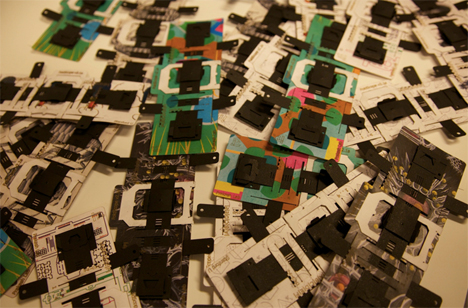
Malaria and other curable diseases claim millions of lives in developing nations each year, often because they are not identified and treated in a timely manner. Current diagnostic methods can take weeks or months, delaying treatment and sometimes with dire consequences. A Stanford University research group called PrakashLab has invented a truly brilliant diagnostic tool called Foldscope: a microscope that are printed and folded from a single sheet of paper.

The origami-like microscopes are extremely portable and inexpensive, two important qualities missing from traditional diagnostic tools. The Foldscope is printed on a single sheet of paper and must be assembled by the user. In order to make the tool universal, there are no written instructions – just a color-coding system to indicate where and how to fold.
The assembled microscope delivers up to 2000X magnification without any kind of external power. It’s extremely durable, small enough to fit in a pocket and light enough to take into the field in even the most remote locations. At an exceptionally low 50 cents each, clinics and healthcare workers in developing nations can afford to keep several.
Manu Prakash, the professor behind PrakashLab, gave a TED Talk about the amazing capabilities and possibilities of this seemingly-simple device. The Foldscope can drastically reduce diagnosis times and help patients receive treatment almost immediately, which is a huge benefit to the fight for global health. But it can also inspire the next generation of scientists to get involved in their world, start exploring, and satisfy their curiosity to learn all that they can.

